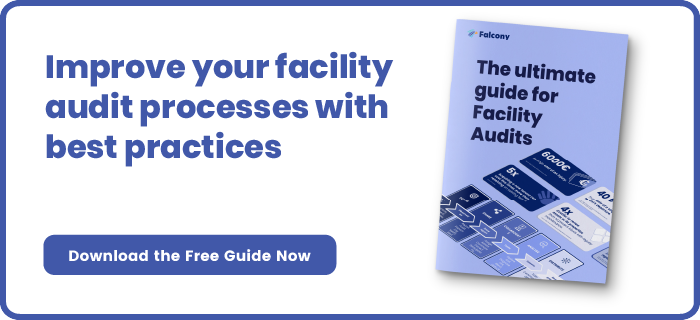The Five Levels Of Maturity In Auditing
Audits are essential tools for checking that your organisation is keeping up with industry standards and best practices. They also help to identify where you need to improve. As such, every industry needs to use them, from retail to facility management.
The Capability Maturity Model Integration (CCMI) has emerged as a beneficial way to characterise and guide maturity in auditing.
Read on to learn about the five levels of maturity to help you achieve high standards for auditing in your organisation.
1. Initial
At the first level, your organisation’s auditing processes are usually chaotic. There are no formal risk assessment or audit processes in place. The environment is usually not stable, and your processes generally undergo rapid, undocumented changes.
As such, the results of your operations are often unpredictable, and cannot be scaled or re-measured. Success is usually due to the competence of individuals, instead of having successful systems in place.
Typical for this level: Reactive audits, no risk assessments in place.
2. Repeatable
Once you have reached the second level, your audits should now have more focus and meet basic objectives. This means that you can repeat them and they should be able to produce predictable results. Although it is still far from a refined auditing process, you will start achieving some of your basic goals.
At this stage, your focus should be on data quality and process maturity. The data quality can be improved with clear instructions and an audit tool that guides end-users to fill in required information.
Typical for this level: Desktop audits that review quality documents of the organisation to ensure compliance to higher level documents.
3. Defined
At this level, you will begin to have more formalised auditing processes. As such, you will start to see an increase in the consistency of your processes and their results.
Typically, you will no longer focus on current problems with your processes and will start identifying and preventing future problems. A solid plan to improve your processes will start forming.
Your focus should be on the quality of your deliverables. This will be achievable with different types of audits, such as Process Audits, Work Audits, and Delivery Audits, that your organisation should already be familiar with.
Typical for this level: Process audits, work product audits and delivery audits.
4. Managed
By the time you have reached the fourth level, your processes will be more established and sophisticated. A set of metrics that allow you to measure the effectiveness of your processes should emerge and guide development plans.
Now, your goal should be set at preventing delivery outage. Your processes should synthesise into an Execution Maturity Audit, which will help you achieve this goal.
Typical for this level: Execution Maturity Audit.
5. Optimised
The final stage involves an ongoing process of continually looking for new ways to improve your audit, with the goal set at enabling business excellence.
Your audits should include Engagement Maturity Audits, that will help you focus on infrastructure, finance, your employees, customer relations, security and more.
Typical for this level: Engagement Maturity Audit.
Final Thoughts
Every organisation wants mature auditing processes. However, reaching that goal can seem daunting. It can help to know where you are in the process, what you have achieved and what lies ahead.
The CCMI five levels of maturity can be applied to auditing, which will hopefully help guide your journey to mature auditing practices in your organisation.
Are you looking for a tool to improve the maturity of audit processes in your organisation? Falcony | Audit ticks all the boxes for low-threshold reporting, analytics and follow-up actions. Is easy to customise, enables real dialogue, data collection, automated reports, and a lot more.
We are building the world's first operational involvement platform. Our mission is to make the process of finding, sharing, fixing and learning from issues and observations as easy as thinking about them and as rewarding as being remembered for them.
By doing this, we are making work more meaningful for all parties involved.
More information at falcony.io.

Related posts
How To Assess The Service Providers’ Quality In Your Facility
The state of facilities has an impact on both the staff who work in the space and the people who...
Checklist For Transportation Of Dangerous Goods
If you are transporting goods you must check to see whether they are dangerous goods. Each country...
What Is The Difference Between 5S And 6S Audits?
Is your organisation struggling to decide whether to use 5S or 6S audits? Or maybe you’re a...





